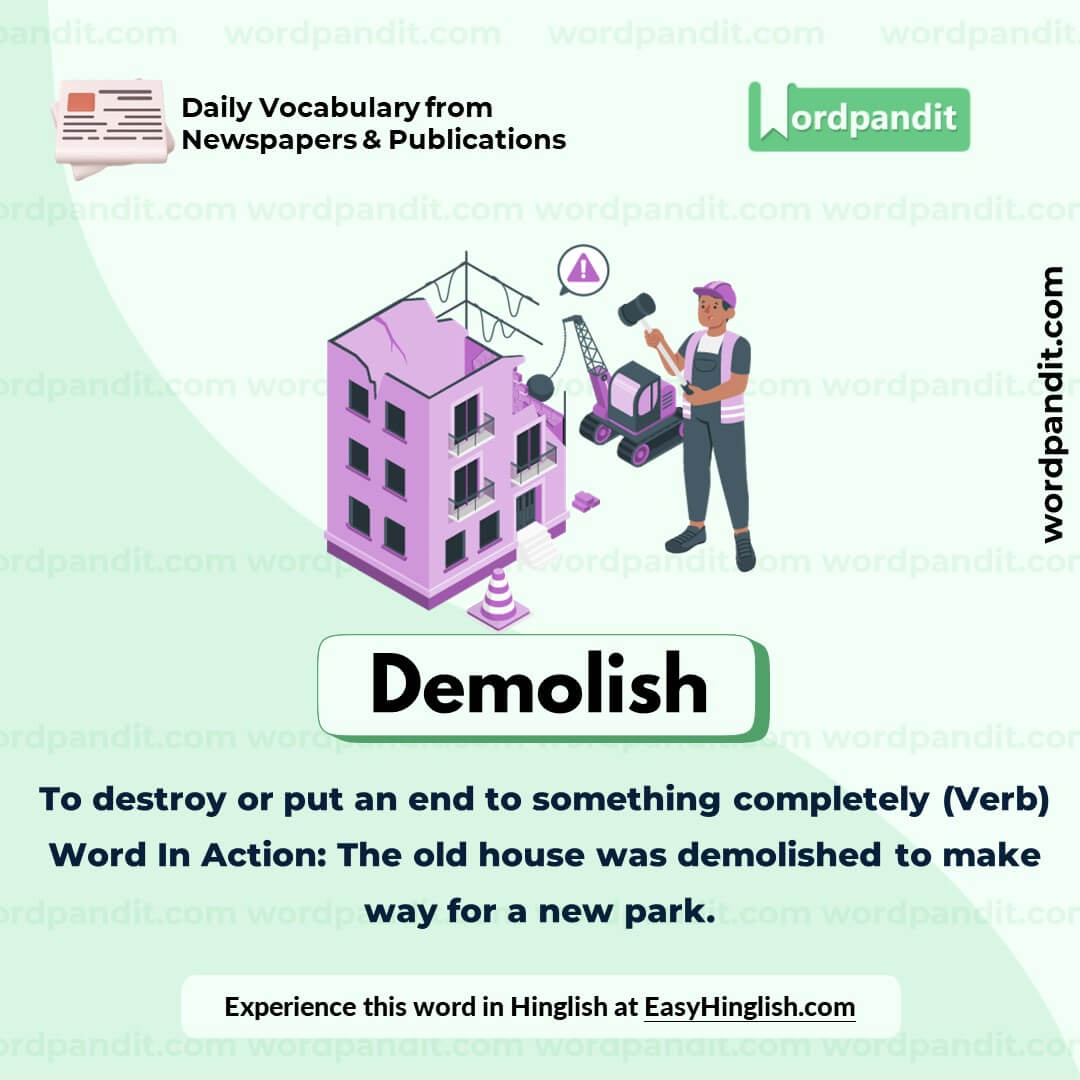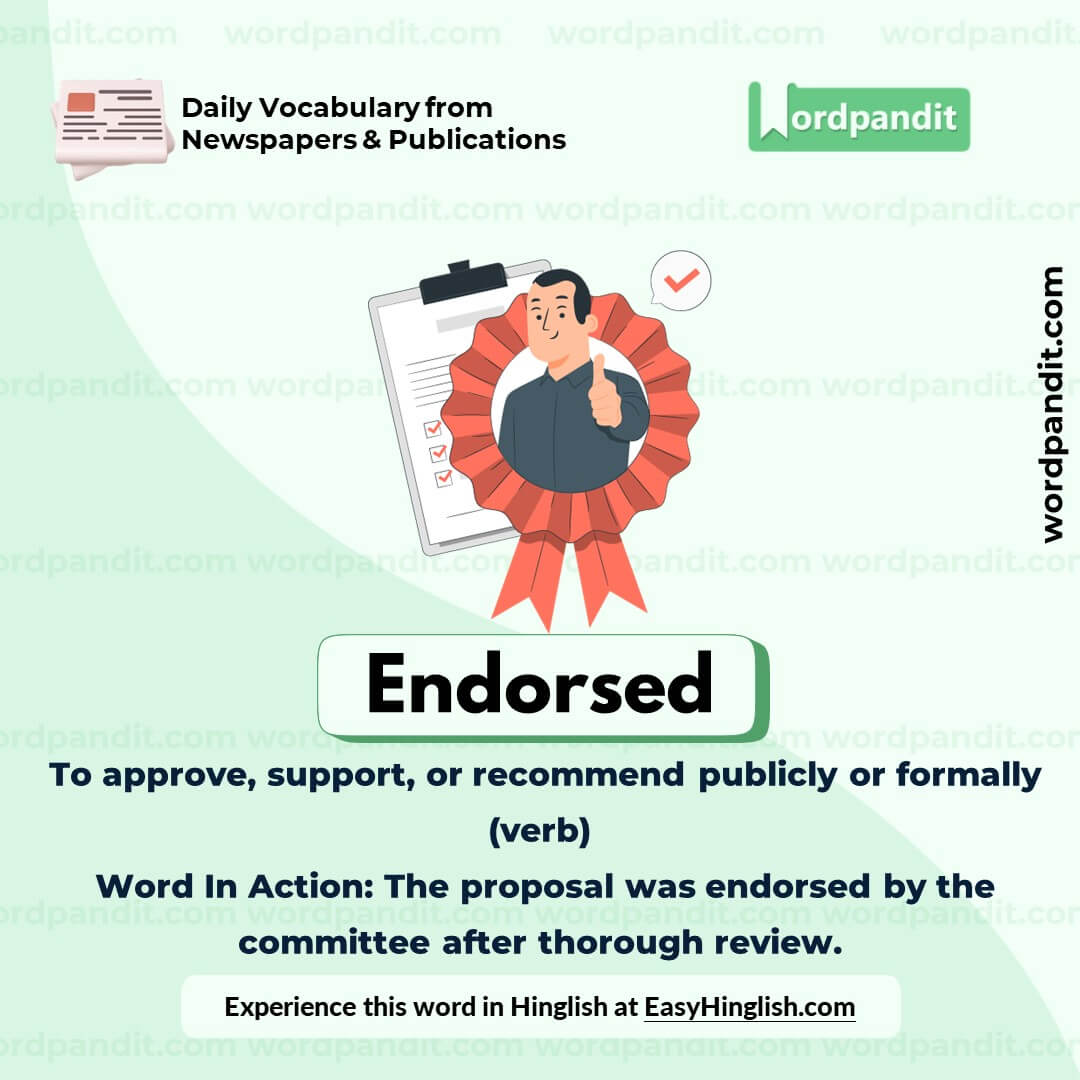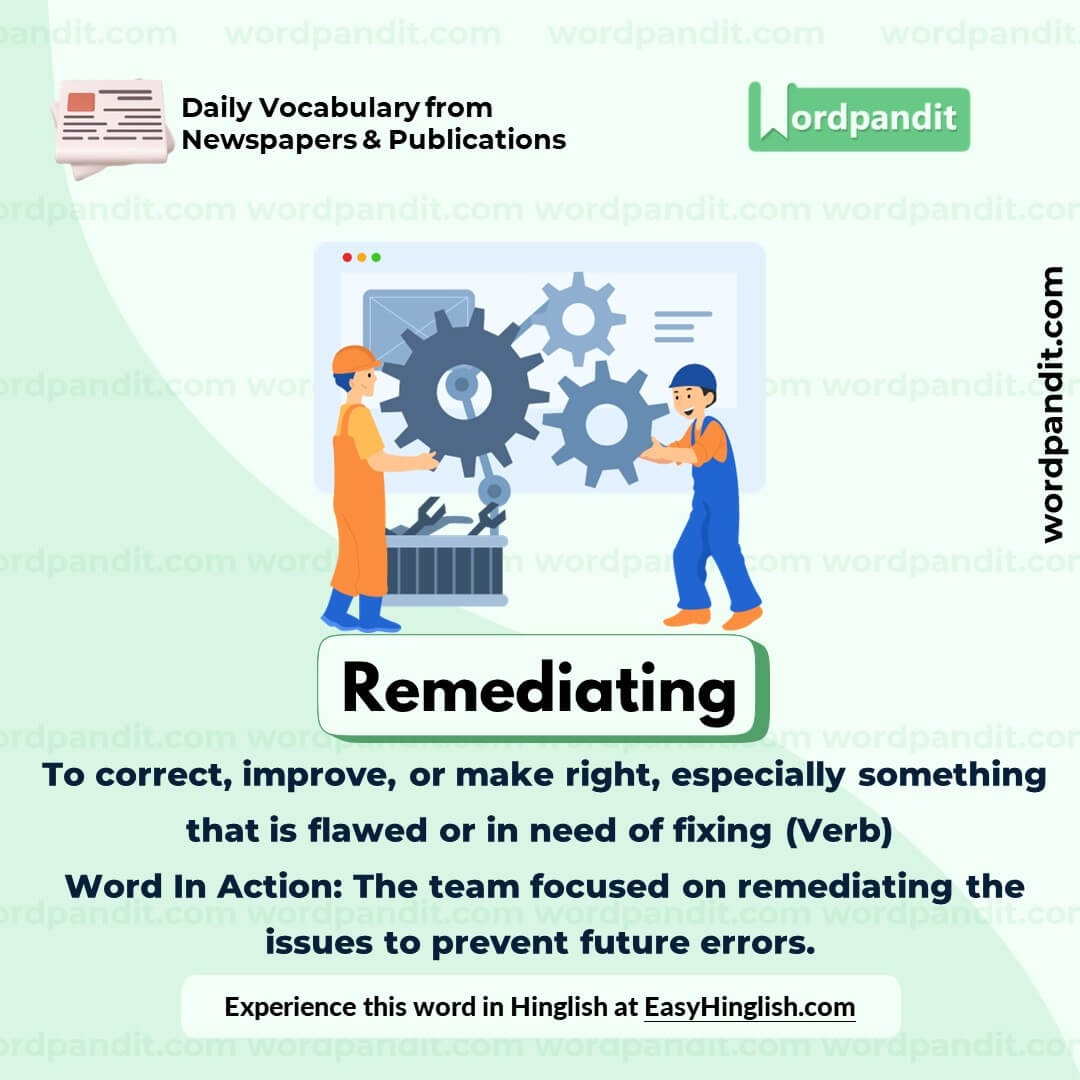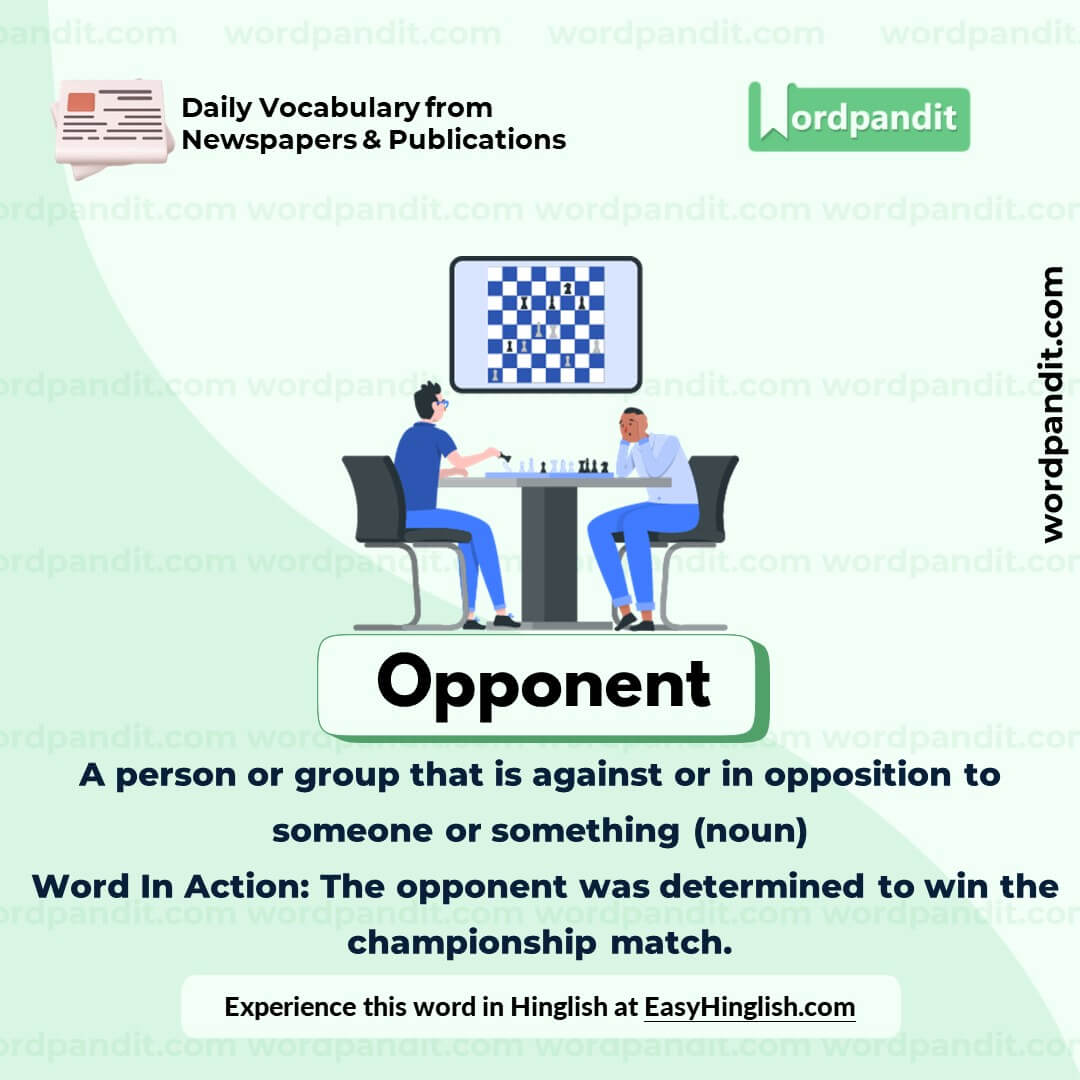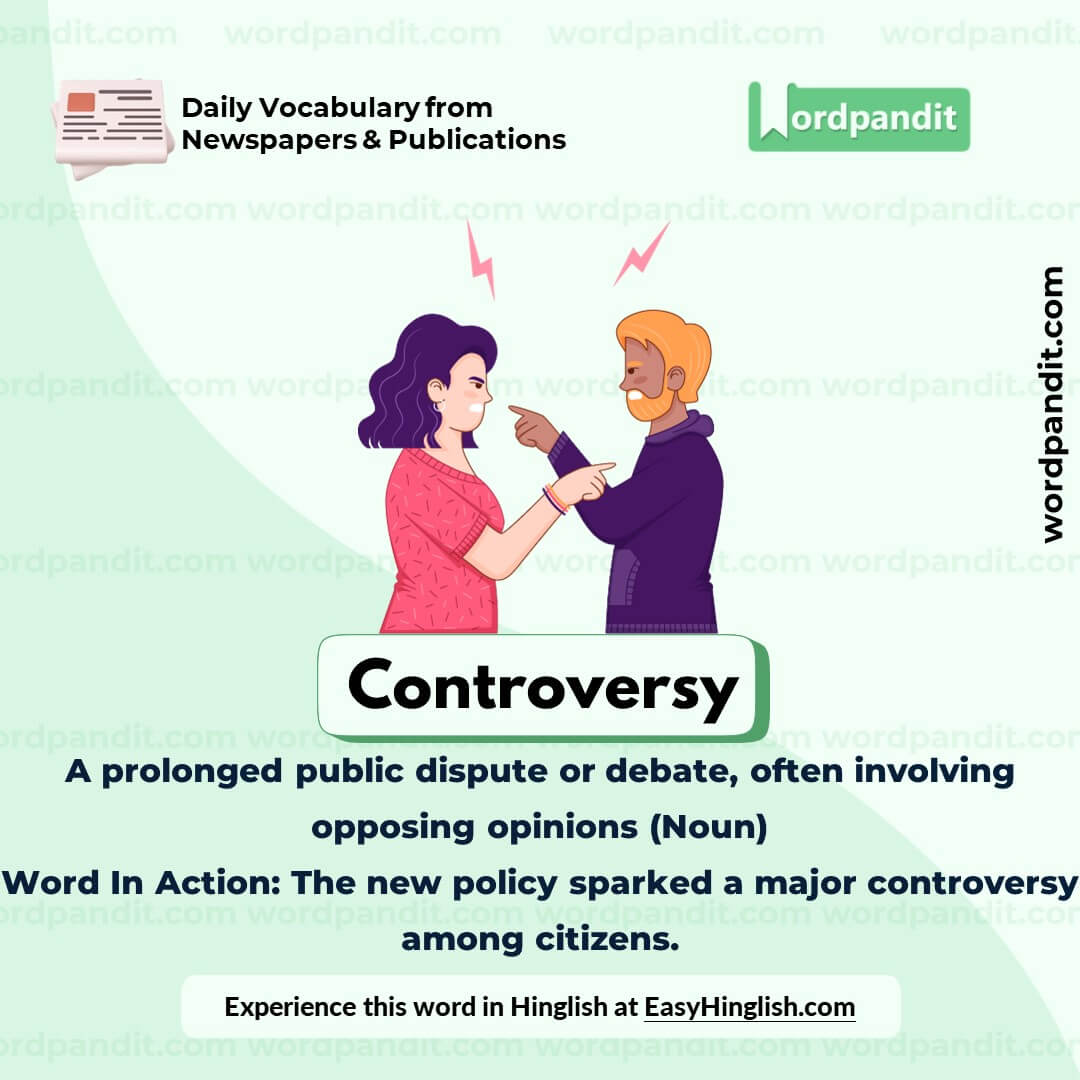Daily Vocabulary from International Newspapers and Publications
Expand Your Vocabulary with Wordpandit’s Global Vocabulary Hub
At Wordpandit, we are committed to helping you develop a truly global vocabulary by drawing from some of the most respected international publications. This section is designed to keep you ahead of the curve by introducing you to words that define global conversations and trends.
The Power of Global Sources
To help you think and communicate on a global scale, we curate vocabulary from renowned international sources, such as:
- The New York Times
- The Washington Post
- BBC
- The Guardian
- The Economist
- Scientific American
- Psychology Today
- And many more...
Stay Global, Stay Competitive
Our daily updates from international publications ensure you are consistently exposed to new words that reflect global news and developments, making sure your vocabulary is not only current but also globally relevant.
Enhance Your Global Perspective
Whether you’re preparing for international exams, aiming to excel in global business communication, or want to enhance your language skills for personal growth, Wordpandit offers the resources you need to thrive in a global context.
Effective Learning, Global Reach
Our learning methodology combines global examples, memory aids, and interactive activities, allowing you to internalize new words effectively and apply them in real-world scenarios.
Begin Your Global Vocabulary Journey Now!
Why Choose Wordpandit?
Practical Learning: Focus on words you'll actually encounter in real-world reading, enhancing your comprehension and communication skills.
Diverse Content: From current affairs to scientific breakthroughs, our varied sources expose you to vocabulary across multiple domains.
Effortless Integration: Make Wordpandit a part of your daily routine. Just a few minutes each day can significantly boost your lexicon over time.
Your Path to Vocabulary Mastery
- Visit our Daily Vocabulary section regularly
- Explore new words and their usage in context
- Practice incorporating these words into your own writing and speech
- Track your progress as your vocabulary expands
Start Your Journey Today
Embark on your vocabulary enhancement journey with Wordpandit. By consistently engaging with our daily posts, you'll build a robust vocabulary that serves you well in academic, professional, and personal contexts.
Remember, a word a day keeps linguistic limitations at bay. Make Wordpandit your daily companion in the quest for vocabulary excellence!
WORD-1: Demolish
Context:
"The late 1990s, Google demolished the competition of other search engines because of an extraordinary innovation developed by Sergey Brin and Larry Page:" - Aeon
Explanatory Paragraph:
The word "demolish" means to completely destroy or bring something down, often with force or intent. In the context above, it is used metaphorically to describe how Google outperformed and overtook other search engines in the late 1990s due to its groundbreaking innovation.
Meaning: To destroy or put an end to something completely. (Verb)
Pronunciation: dih-MOL-ish
Difficulty Level: ⭐⭐⭐ Intermediate
Etymology: From Middle English "demolisshen," derived from Old French "demolir," and ultimately from Latin "dēmōlīrī," meaning "to tear down."
Synonyms & Antonyms:
Synonyms: Destroy, dismantle, raze, annihilate, crush
Antonyms: Build, construct, create, erect, restore
Usage Examples:
- The old stadium was demolished to make way for a new shopping complex.
- The boxer demolished his opponent in the first round.
- The hurricane demolished several homes along the coastline.
- The software update aims to demolish the bugs that plagued previous versions.
Cultural Reference:
"Demolition derbies," popular in the United States, are events where vehicles are intentionally crashed into one another until only one remains operational. - Cultural phenomenon
Think About It:
How might the idea of "demolishing" obstacles in life apply to personal growth or innovation?
Quick Activity:
Write a short paragraph describing a scenario where "demolish" is used in a metaphorical sense, such as demolishing an outdated belief or idea.
Memory Tip:
Think of the word "demolish" as related to "demo," meaning to show or break apart something for understanding, and "ish," indicating action—breaking something down in action.
Real-World Application:
In business, "demolish" is often used to describe how one company surpasses or outcompetes others through innovation, such as Google demolishing its competitors with its superior search algorithm.
WORD-2: Endorsed
Context:
"The sociologist John R Seeley wrote in 1949 that ‘a person is prestigious if he is endorsed by prestigious people.’" - Aeon
Explanatory Paragraph:
The word "endorsed" refers to the act of publicly or formally expressing support or approval for something or someone. It is commonly used in contexts where authority figures, organizations, or influential individuals express their approval to lend credibility or promote confidence in a person, idea, or product.
Meaning: To approve, support, or recommend publicly or formally (verb).
Pronunciation: en-DORST
Difficulty Level: ⭐⭐ Beginner to Intermediate
Etymology: Originates from the Middle English term "endossen," meaning to write on the back of a document, derived from Old French "endosser" (en- ‘on’ + dos ‘back’).
Synonyms & Antonyms:
Synonyms: Approve, support, advocate, sanction, ratify
Antonyms: Oppose, reject, disapprove, deny, veto
Usage Examples:
- The new policy was endorsed by several leading environmental organizations.
- Her candidacy was officially endorsed by the mayor during the press conference.
- Many celebrities have endorsed the charity campaign to raise awareness about the cause.
- The committee endorsed the proposal after thorough deliberation.
Cultural Reference:
In politics, endorsements play a crucial role. For instance, during U.S. presidential elections, candidates often seek endorsements from influential figures, such as former presidents or major unions, to gain trust and credibility among voters.
Think About It:
Why do you think endorsements from famous or influential people often carry so much weight in society? Is it always justified?
Quick Activity:
List three instances where you have seen endorsements being used (e.g., in ads, politics, or social media). Identify whether they influenced your perception of the endorsed subject.
Memory Tip:
Think of "endorse" as lending your "endorsement stamp" to something, much like approving a check or signing your name to validate it.
Real-World Application:
The word "endorsed" is frequently used in advertising, politics, and professional settings to indicate support or approval. For instance, when a trusted expert endorses a product, it boosts consumer confidence and increases the likelihood of purchase.
WORD-3: Remediating
Context:
"Links treat creativity as the work of remediating and remaking, which is foregrounded in the slogan for Google Scholar: ‘Stand on the shoulders of giants.’" - Aeon
Explanatory Paragraph:
The word "remediating" refers to the act of correcting or improving something, often by addressing its shortcomings. In the context above, it describes the process of revisiting and reworking ideas or existing knowledge to create something new or better. It highlights creativity as an iterative and collaborative process.
Meaning: To correct, improve, or make right, especially something that is flawed or in need of fixing. (Verb)
Pronunciation: ree-MEE-dee-ay-ting
Difficulty Level: ⭐⭐⭐ Intermediate
Etymology: From Latin "remedium," meaning "cure" or "remedy," combined with the suffix "-ate," indicating action.
Synonyms & Antonyms:
Synonyms: Correcting, fixing, improving, rectifying, amending
Antonyms: Worsening, damaging, neglecting, harming
Usage Examples:
- The company is focused on remediating the environmental damage caused by its factories.
- The teacher spent extra time remediating the students’ understanding of complex equations.
- The engineer proposed a plan for remediating structural weaknesses in the building.
- Remediating historical injustices requires acknowledging past mistakes and taking meaningful action.
Cultural Reference:
In the tech industry, "remediating" is a common term used in cybersecurity to describe the process of fixing vulnerabilities or recovering from breaches. For example, "remediating security gaps" is crucial to maintaining system integrity. - Common tech parlance
Think About It:
How does the concept of "remediating" apply to creative fields like art or literature, where improvement might not always be about fixing flaws?
Quick Activity:
List three areas in your life where you think "remediating" could lead to significant improvement. Write a sentence about how you would approach each.
Memory Tip:
Think of "remediating" as "remedy" plus "creating"—it’s about fixing something while bringing about a positive change.
Real-World Application:
In education, remediating gaps in knowledge is a critical step to ensure that all students can meet learning standards and succeed academically.
WORD-4: Opponent
Context:
"While opponents of affirmative action argue that such practices unfairly favour some groups over others, proponents point out that race is just one factor among many in admissions decisions." - Aljazeera
Explanatory Paragraph:
An "opponent" is a person or group that disagrees with or actively works against an idea, plan, or entity. The term is often used in debates, sports, politics, and discussions to describe someone who holds a position contrary to another. Opponents play a critical role in fostering dialogue, competition, or balance in various fields.
Meaning: A person or group that is against or in opposition to someone or something (noun).
Pronunciation: uh-POH-nuhnt
Difficulty Level: ⭐⭐ Beginner to Intermediate
Etymology: Derived from the Latin word "opponere," meaning "to set against," from "ob-" (against) and "ponere" (to place).
Synonyms & Antonyms:
Synonyms: Rival, adversary, challenger, critic, competitor
Antonyms: Ally, supporter, proponent, advocate, partner
Usage Examples:
- The opponent argued passionately against the new policy during the debate.
- In chess, understanding your opponent’s strategy is key to winning.
- The proposal faced strong opposition from environmental opponents.
- She trained rigorously to face her opponent in the championship match.
Cultural Reference:
In sports, opponents are essential for competition. For instance, iconic rivalries like those between Roger Federer and Rafael Nadal in tennis or Manchester United and Liverpool in football highlight the importance of opponents in driving excellence and excitement.
Think About It:
Is it more beneficial to view opponents as adversaries or as contributors to growth and improvement? Why?
Quick Activity:
Think of a recent debate or competition you watched or participated in. Identify the main arguments presented by the opponents and discuss which points were the most compelling.
Memory Tip:
Remember "opponent" by associating it with "opposite" — someone standing on the opposite side in a discussion, game, or argument.
Real-World Application:
The concept of opponents is central to democratic debates, competitive sports, and legal systems. Understanding and addressing an opponent's perspective often leads to stronger arguments, innovative solutions, and fairer outcomes.
WORD-5: Controversy
Context:
"He has also attracted controversy over his views on Romania’s past, including that Ion Antonescu, the country’s World War II-era leader who joined forces with Adolf Hitler, should be seen as a national hero." - Aljazeera
Explanatory Paragraph:
The term "controversy" refers to a situation or topic that provokes disagreement, debate, or dispute among people, often because it involves conflicting opinions, values, or beliefs. It commonly arises in political, social, or cultural contexts where there is a clash of perspectives.
Meaning: A prolonged public dispute or debate, often involving opposing opinions. (Noun)
Pronunciation: kon-truh-vur-see
Difficulty Level: ⭐⭐⭐ Intermediate
Etymology: Derived from the Latin "controversia," from "contra" meaning "against" and "vertere" meaning "to turn."
Synonyms & Antonyms:
Synonyms: Dispute, debate, contention, disagreement
Antonyms: Agreement, harmony, consensus, accord
Usage Examples:
- The politician's comments sparked a nationwide controversy.
- The new law has been a source of controversy among activists and lawmakers.
- The director's controversial film generated significant controversy in the media.
- The issue of climate change often leads to controversy in public debates.
Cultural Reference:
"Controversy is a part of progress, as conflicting ideas often lead to breakthroughs in thought." - Inspired by historical debates in philosophy and science.
Think About It:
Why do some controversial topics provoke intense reactions while others fade quickly?
Quick Activity:
List three controversies you have heard about recently. What were the opposing viewpoints, and how did they shape your opinion?
Memory Tip:
Remember "controversy" by breaking it into "contra" (against) + "verse" (turn)—imagine two groups turning against each other in a debate.
Real-World Application:
The word "controversy" is frequently used in journalism, politics, and academic discussions to describe situations where opinions are divided, making it an essential term for analyzing conflicts.


